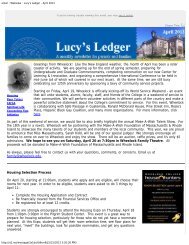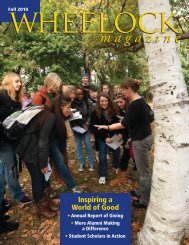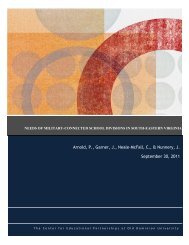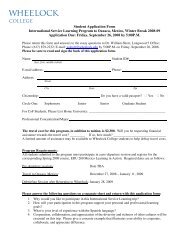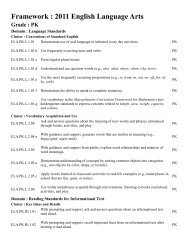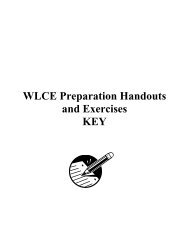You also want an ePaper? Increase the reach of your titles
YUMPU automatically turns print PDFs into web optimized ePapers that Google loves.
• How does the play present ordinary citizens, as represented by the spectators at both<br />
the English and the French trials? Should we be critical, amused, or angry at them?<br />
What about the peasants that storm the Bastille—do they behave the way we want<br />
them to? How does the story shape your feelings about mob rule?<br />
• What is the role <strong>of</strong> the educated, pr<strong>of</strong>essional class in the play, as represented by Dr.<br />
Manette, Stryver, Darnay, and Carton? Is their benign but still powerful position<br />
necessary to control the citizenry? Comment on Carton’s remark that “the English need<br />
order—whether it is just or not.”<br />
• Why do the French citizens begin making jokes about the guillotine, calling it “The<br />
Barber,” “the National Razor,” and saying it is a fine cure for a headache or for hair that’s<br />
turning gray? Have you heard or made jokes about similarly grim situations? Why are<br />
they both appalling and appealing?<br />
• How difficult is it for those without power to rebel against the powerful? Consider<br />
Madame Defarge’s response when her husband wonders why he stopped Gaspard from<br />
killing the Marquis: “You were afraid. You still think <strong>of</strong> them as masters and betters. We<br />
have to think differently. It takes time. But it’s coming—soon.” What modern parallels<br />
<strong>of</strong> oppressed or disadvantaged groups can you think <strong>of</strong>? What directions do you think<br />
their future will take? Have there been times in your own life when you had to rethink<br />
your vision <strong>of</strong> yourself, in order to move ahead? Explain and share your ideas.<br />
The power <strong>of</strong> love<br />
In the end, despite all the hatred and suffering, love makes the difference. Most <strong>of</strong> the<br />
variations on love show its power to ennoble, save, defend, transform, and resurrect.<br />
• Discuss some <strong>of</strong> the most important moments <strong>of</strong> tenderness, compassion, loyalty, and<br />
passion. Which ones feel most powerful and real?<br />
• How does heroic sacrifice arise from love? Why is it not necessarily the people one<br />
would expect who do the most out <strong>of</strong> love?<br />
• When loved ones are harmed, love can turn to bitterness, hatred, and the desire to<br />
destroy. Are crimes justified if they are committed in the name <strong>of</strong> a wronged loved one?<br />
• What about violence committed for the love <strong>of</strong> a noble cause? What examples in<br />
today’s society can you think <strong>of</strong>? What is your response?<br />
Rights, wrongs, crimes, and punishment<br />
• What is the difference between justice and vengeance? Do you support the idea <strong>of</strong><br />
violence in support <strong>of</strong> eliminating an injustice? How far would you be willing to go?<br />
5




